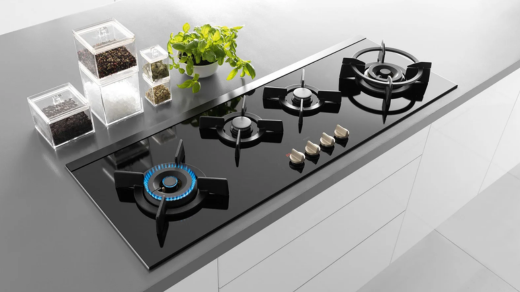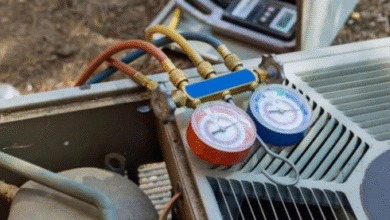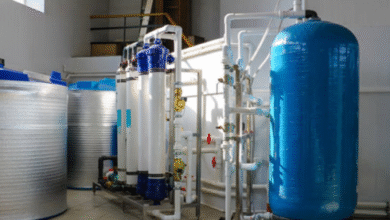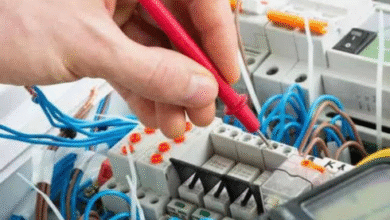When the Heat Doesn’t Happen: A Candid Look at Cooktop Repair

Let’s set the scene. It’s 6:15 p.m., you’ve got a pan of veggies prepped, some salmon ready to sear, and then—click, click, click… nothing. Or maybe you hear the electric hum, but the burner stays cold. You try another knob, then another. Still nothing. Dinner plans? Halted. Mood? Mildly wrecked. Welcome to the suddenly inconvenient world of cooktop repair.
Whether it’s a glass-top electric unit that’s gone cold or a gas burner that refuses to light, a cooktop that doesn’t cooperate is more than a minor kitchen hiccup—it’s a full-blown disruption to your routine. And when your stovetop becomes just another flat surface, it’s time to do something about it.
Cooktops: The Everyday Appliance We All Count On
The cooktop doesn’t get the glamour that the oven or fridge does. It’s not flashy. There are no fancy lights or display panels begging for attention. But it’s the workhorse. The one appliance that gets used almost daily, from boiling your morning eggs to crafting that late-night grilled cheese.
So when it breaks down? That quiet reliability turns into a glaring absence. And suddenly, you realize just how much you’ve been taking that surface heat for granted.
What’s Actually Going Wrong Under There?
Cooktops might look simple from the outside—four or five burners, a few knobs or touch controls—but inside, it’s a complex system of sensors, heating elements, igniters, and more. And depending on whether you’re working with gas, electric, or induction, the issues (and the fixes) can vary wildly.
Some of the most common cooktop problems include:
- One or more burners not working – Could be a faulty connection, a broken igniter, or a blown element.
- Burner stays stuck on high or won’t adjust – Often a sign of a bad switch or thermostat.
- Gas smell or clicking without ignition – Could be a clogged burner or defective spark module. Also? Potentially dangerous.
- Cracked glass top – Looks cosmetic, but can impact performance and safety.
- Burners heat unevenly – Which usually leads to one side of the pancake burning while the other stays raw. Not ideal.
Some of these problems are obvious. Others hide beneath the surface, literally. And unless you’ve got experience working with electrical components or gas systems, diving in solo isn’t just risky—it could make things worse.
The Temptation to DIY (And Why You Might Want to Think Twice)
YouTube can make any repair look easy. But a 5-minute highlight reel rarely shows the frustration, stripped screws, or the “oops” moment when you realize you’ve disconnected the wrong thing.
If your issue is simple—say, a dirty burner cap or a loose control knob—sure, give it a go. But if you’re dealing with wiring, gas flow, or a shattered ceramic surface? Do yourself a favor and call someone who does this for a living.
Cooktops, especially modern ones, can be shockingly sensitive. One misstep and you’re not just out a burner—you’re potentially dealing with a full replacement.
What to Look for in a Cooktop Repair Technician
If you’ve reached the “I need help” stage, finding the right help matters. Not all appliance repair techs are created equal. You want someone who’s got experience with your type of unit—whether that’s a slick electric glass-top, a traditional gas cooktop, or one of those fancy new induction setups.
Here’s what a quality repair service should offer:
- Prompt, reliable service – Because waiting a week for a repair defeats the point.
- Experience across brands – Samsung, GE, KitchenAid, Bosch—they all have their quirks.
- Clear diagnostics and estimates – No vague pricing or “we’ll see once we get in there.”
- Access to genuine parts – Third-party components often lead to second repairs.
- Respect for your home – Clean shoes, clean work area, clear communication.
And honestly? Bonus points if they explain what went wrong in plain English and give you a few pointers for avoiding the issue again.
Can Cooktops Always Be Fixed?
Short answer: often, yes. Long answer: it depends.
If your unit is under 10 years old and hasn’t had multiple issues already, it’s usually worth repairing. But if it’s older, out of warranty, and parts are getting tough to source, a replacement might make more sense.
That’s why working with someone trustworthy is key. They’ll tell you straight-up whether your money’s better spent on a repair or a new unit. No pressure, no nonsense.
Keep Your Cooktop Happy (and Working)
While no appliance lasts forever, a little care can keep yours working longer and better. Here’s how to treat your cooktop right:
- Don’t let spills sit – Especially sugary sauces. Clean them up quickly.
- Avoid dragging pots across the surface – It damages the coating or glass.
- Use cookware that matches the burner size – Helps with even heat distribution.
- Check for gas leaks or odd smells regularly.
- Schedule a maintenance checkup every couple of years if you cook often.
These simple habits don’t take much time, but they can add years to your cooktop’s lifespan.
Final Thought: Cold Burners, Warm Solutions
We all rely on our kitchen to just work. And when it doesn’t—especially something as central as the cooktop—it throws off the whole flow of life. But here’s the upside: most problems are fixable, and often quicker than you think.
So if your burners have gone silent, your heat’s gone missing, or your surface just doesn’t act like it used to, don’t stress. Get in touch with someone who knows cooktop repair, and let them handle the fix while you get back to what matters—making meals, not worrying about why the spaghetti water won’t boil.



